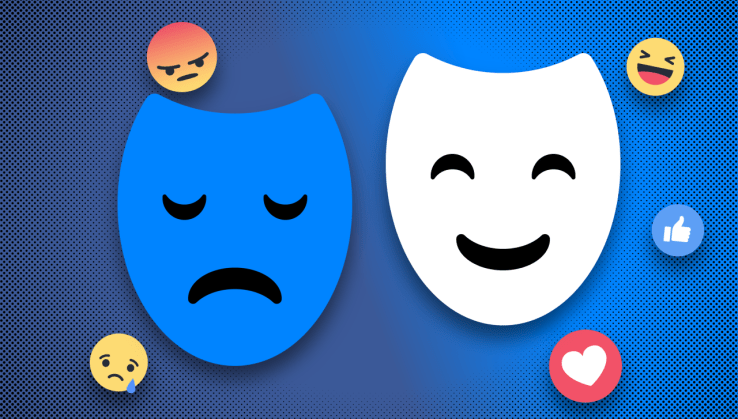
Facebook is putting its short-term money where its mouth is, reducing the presence of viral videos in an effort to boost well-being of users of its site. In Facebook’s Q4 2017 earnings report today CEO Mark Zuckerberg announced that “Already last quarter, we made changes to show fewer viral videos to make sure people’s time is well spent. In total, we made changes that reduced time spent on Facebook by roughly 50 million hours every day.”
That’s a reduction of roughly 2.14 minutes per day per user, given that Facebook has 1.4 billion users now. Zuckerberg later said that’s a reduction of total time spent on Facebook by 5 percent.
The viral video changes led to a reduction of 700,000 daily active users in the U.S. and Canada region. That’s an unprecedented decline for Facebook, which has done nothing but grow since its launch in 2004. Facebook’s CFO David Wehner says he believes this is a one-time decline and not a trend. That could depend on how many time-reducing changes Facebook is willing to make.
Even if Facebook hadn’t lost the 700,000 daily users in the U.S. and Canada, the company would still have had the slowest quarter-over-quarter percentage daily user growth ever, at 2.24 percent. The 2.18 percent growth it did experience is much lower than its previous worst quarters, Q4 2016 and Q4 2017, when it had 3 percent growth.
Still, once Facebook explained that U.S. and Canada DAU decline wasn’t a trend but a result of the viral video and well-being changes, Facebook’s share price rocketed up from being down as much as -4 percent in after-hours trading to around +4 percent. Investors may believe this means Facebook won’t be taking massive user count hits from the changes, and that the overall growth trend persists.

Facebook is making good on the promises Zuckerberg made on last quarter’s earnings call when he said “Protecting our community is more important than maximizing our profits.” It shows Facebook is executing on the big News Feed changes it announced earlier this month that were designed to reduce passive browsing, video consumption and news in favor of active interactions with close friends.
Today Zuckerberg explained that he’s changed the directive to his employees from showing the most meaningful content to people to showing content that drives the most meaningful interactions. That’s a subtle but important change that could decrease the prevalence of content people find informative or entertaining, but not special enough to share and talk about. Zuckerberg says the company will begin to judge itself by “The number of interactions that people have on the platform and off the platform that people report to us as meaningful.”
Facebook’s willingness to promote user well-being over its bottom line is unusual amongst big corporations. Some see it as an act of compassion. Others believe it’s just a long-term strategy designed to prevent a bigger “ditch Facebook” movement from emerging that could cost it a lot more than the time-spent reduction announced today.
But for now, investors trust the company will be able to make a more meaningful, less passive News Feed work. Less time spent could mean fewer ad impressions but deeper engagement which everything people see which might increase auction competition and lead to higher ad prices. Zuckerberg explained this saying that if you’re used to meaningless content, you grow accustomed to skipping stuff in your News Feed, and that can translate over to ads.
So, Facebook might actually earn just as much money or more by ditching its reliance on the blank-eyed scrolling addiction of its users.
For more on Facebook’s struggle with Time Well Spent, check out our feature piece: “The difference between good and bad Facebooking.”
The post Facebook reduces time spent by 2 min/user/day to push well-being appeared first on Article Pub.
from WordPress http://ift.tt/2FAEsn0
No comments:
Post a Comment